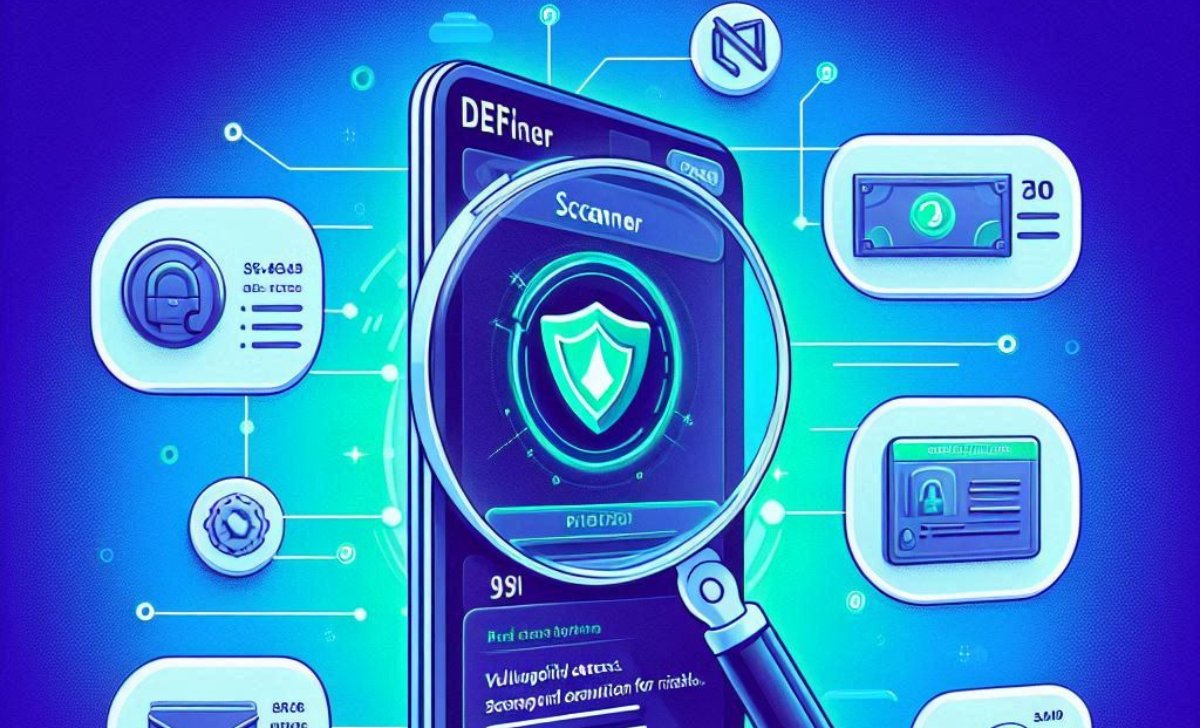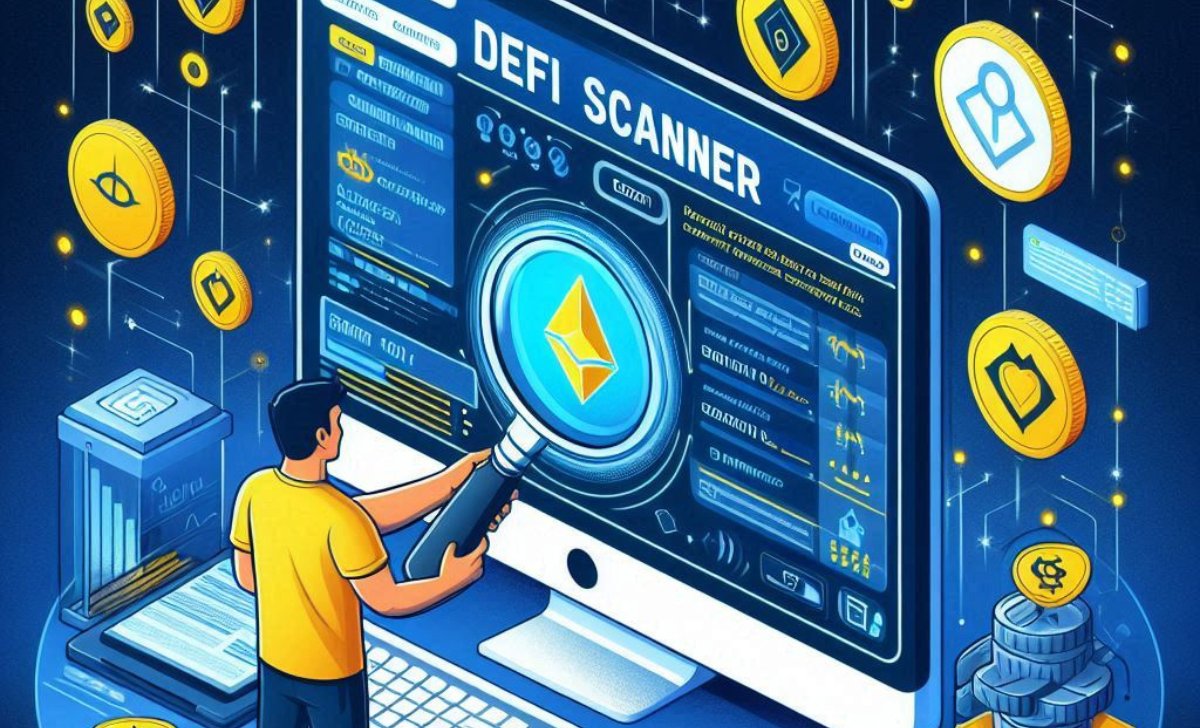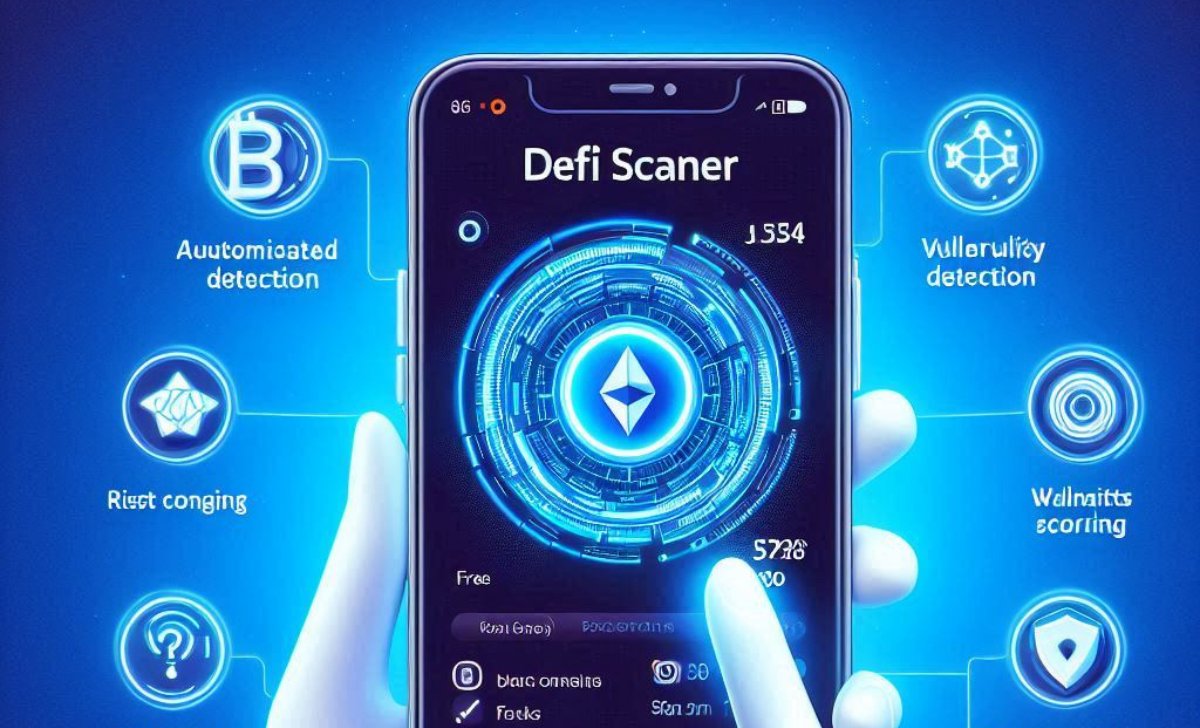DeFi Scanner is a free, real-time tool that helps users analyze smart contracts for risks before interacting with them. It offers key features such as automated vulnerability detection, risk scoring, and wallet integration that make it suitable for both retail investors and developers.
This tool will be explored in this article of TopCoin9— covering the definition, key features, how it works, who should use it, pros and cons, and a simple step-by-step guide to get started.
What Is DeFi Scanner?

DeFi Scanner is a free, automated tool that audits smart contracts and monitors DeFi protocols for security risks. Its purpose is to identify vulnerabilities before attackers do — giving users insight into potentially dangerous contracts.
Unlike manual smart-contract audits, which are typically performed by security firms like Certik or Trail of Bits (2023), DeFi Scanner offers an on-demand, real-time solution accessible to anyone. Whether you’re evaluating a DeFi token, a new yield farming protocol, or a staking platform, the DeFi Scanner analyzes the code structure and behavior to determine its risk level.
According to a 2022 report by Chainalysis, over $3.8 billion was lost in crypto hacks, the majority of which exploited vulnerabilities in unaudited smart contracts. Tools like DeFi Scan aim to reverse that trend—offering a proactive approach to security.
Now that we’ve defined it, let’s take a look at what makes DeFi Scanner so powerful through the content below!
Key Features of DeFi Scanner
DeFi Scanner is equipped with essential features that enhance security across all levels of DeFi participation:
- Automated Vulnerability Detection: De.Fi Scanner detects critical contract flaws such as reentrancy, integer overflow, backdoors, and weak ownership controls. These issues were behind major DeFi hacks, as noted by CoinDesk in 2023.
- Real-Time Monitoring: The tool offers live alerts when contract code changes or behaves suspiciously. This enables users to act before potential exploits occur.
- Smart Contract Risk Scoring: Each contract receives a clear security score based on detected risks and best practices. Investors can use this to prioritize safer DeFi protocols.
- User-Friendly Reports: This generates visual risk summaries for users without coding skills. It’s especially helpful for retail investors making fast decisions.
- Wallet Integration: The tool integrates with Web3 wallets like MetaMask, allowing instant scanning during transactions. This simplifies due diligence without leaving the dApp.
A study from DeFiLlama (2024) revealed that protocols with integrated risk-monitoring tools had 70% lower hack incidents than those without. This highlights the impact real-time audit solutions like DeFi Scanner can have.
With such robust features, who exactly benefits most from using DeFi Scanner? Details will be revealed in the content below!
Who Should Use DeFi Scanner?

The answer is: almost everyone involved in DeFi. But some use cases stand out:
- Retail Investors: Everyday crypto users can scan smart contracts before signing transactions or investing, reducing exposure to scams. This helps them make safer, data-driven decisions in volatile DeFi environments.
- Smart Contract Developers: Developers can run pre-audit scans to detect bugs or vulnerabilities before deploying to the mainnet. This early-stage testing reduces risks and speeds up the secure development cycle.
- Crypto Project Teams: Projects can use DeFi Scanner to build community trust through transparent, real-time security reports. A secure protocol is more likely to attract users and institutional interest.
- DAOs and Governance Communities: DAOs can evaluate the security of proposals and third-party integrations using the scanner’s risk scores. This ensures community funds are only allocated to vetted, lower-risk contracts.
A report by Harvard Business Review (2023) highlighted that increased transparency through third-party tools boosts user confidence and capital inflow in decentralized ecosystems. DeFi Scanner contributes exactly that level of transparency.
Let’s now uncover how this tool operates under the hood to deliver such results in the next part!
How DeFi Scanner Works
DeFi Scanner works by connecting to public blockchain networks and extracting the source code of a smart contract. Once it has the code, it applies static analysis techniques — scanning for known vulnerability using pre-defined rule sets and machine learning models.
Here’s how a typical scan works:
- User inputs contract address
- The scanner retrieves the bytecode and source (if verified)
- It performs logic analysis, flagging risk signals
- It generates a report with a score and breakdown
For example, a common vulnerability to the scanner flags is the absence of require () checks on withdraw functions — a sign of insecure funds handling.
According to Ethereum.org (2024), more than 94% of hacks on DeFi platforms stem from faulty logic in smart contracts. DeFi Scanner addresses this by analyzing function visibility, token approvals, and liquidity-lock mechanisms.
Now that you know how it works, let’s break down the tool’s pros and cons through the next content!
Pros and Cons of DeFi Scanner

Like any tool, De.Fi Scanner isn’t perfect. But it brings a lot to the table:
Pros
- Free and easy to use
- Works in real time
- No coding knowledge required
- Scans across major DeFi blockchains (Ethereum, BNB Chain, Arbitrum, etc.)
Cons
- May not detect sophisticated zero-day exploits
- Not a substitute for manual audits from professionals
- Depends on verified source code for accurate analysis
According to TechCrunch (2024), DeFi tools must evolve rapidly as attackers grow smarter. While DeFi Scanner is highly effective for general risk awareness, it should be used alongside security best practices.
If you’re ready to try it yourself, here’s how to get started. Find out more in the next section!
How to Use DeFi Scanner (Step-by-Step Guide)
Using DeFi Scanner is simple, even for beginners, and requires no technical background. Here’s a quick step-by-step guide to get started:
- Access the Platform: Visit the official DeFi Scanner site or a trusted partner like De.Fi to begin your scan.
- Enter the Contract Address: Paste the smart contract address you want to analyze into the search bar.
- Run the Scan: Click “Scan” and wait a few seconds as the tool reviews code vulnerabilities, ownership, and liquidity parameters.
- Review the Results: The platform will present a visual risk score and identify specific red flags such as reentrancy or centralization risks.
- Decide With Confidence: Use the information to decide whether to proceed with a transaction or avoid a risky asset.
According to Ethereum.org (2024), tools that simplify contract evaluation are essential for building trust in decentralized applications. DeFi Scanner aligns with this principle by providing real-time, actionable insights that help users avoid malicious or poorly coded contracts.
Now let’s put everything into perspective and highlight why this tool matters for the entire DeFi ecosystem in the content below!
Why DeFi Scanner Matters in the DeFi Ecosystem

With the total value locked (TVL) in DeFi surpassing $85 billion as of Q1 2025 (source: DefiLlama, 2025), the stakes have never been higher. Security tools like DeFi Scanner help democratize access to trustworthy information — an essential ingredient in an open financial system.
By making contract audits available to everyone, it reduces the knowledge gap between developers and retail investors. It also acts as a deterrent to scammers, knowing their code will be scanned before users engage.
In summary, DeFi Scanner is a powerful, free tool that helps users audit smart contracts and monitor risks in real time. We hope this guide has provided you with clear, practical insights into how to stay safe in the DeFi space. Don’t forget to follow our latest articles for more expert tips and updates on blockchain security.

Ethan Carter, a seasoned crypto analyst with 7+ years of experience, has a deep understanding of market trends, DeFi, and blockchain technologies. His expert insights and market forecasts have helped thousands of traders and investors make informed decisions.
Email: [email protected]












